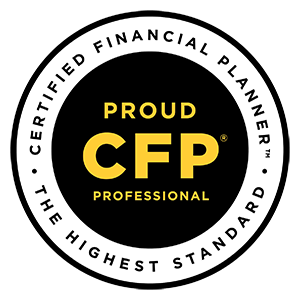Get in touch
Call or Text:
937-404-5180
Email:
dwiedmeyer@kldwealth.com
Dave Ramsey vs. Ramit Sethi vs. Suze Orman - Which Budget Philosophy is Right for You?
When it comes to personal finance, there's no shortage of expert advice—and no shortage of differences in that advice. Dave Ramsey, Ramit Sethi, and Suze Orman are three of the most well-known financial gurus out there, and while they each offer valuable insights, their approaches to budgeting and money management can be pretty different. As a fee-only financial planner based in Dayton, OH, I often get asked which approach is the best.
Spoiler alert: It depends! But let's break down each of these financial titans’ philosophies so you can decide which resonates most with you.
Dave Ramsey: Discipline and Debt-Free Living
If you know me, you know I lean toward Dave Ramsey's principles. Ramsey’s approach is simple, structured, and, most importantly, proven. His Baby Steps provide a clear roadmap for getting out of debt, saving, and investing. Ramsey’s method is based on a zero-based budget, meaning every single dollar has a job, whether it's paying bills, saving, or giving.
The Key Tenets of Ramsey's Philosophy:
- Debt Elimination: Ramsey preaches that debt is the enemy of financial freedom. His famous "debt snowball" method encourages you to list all your debts from smallest to largest, throwing every extra dollar at the smallest one until it's paid off, then moving on to the next.
- Emergency Savings: Step 1 is to save $1,000 for emergencies. Once you're debt-free, Ramsey encourages you to save 3-6 months of expenses.
- Investing 15% of Income: Ramsey suggests investing 15% of your household income into Roth IRAs and pre-tax retirement plans once your emergency fund is set and debts (except your mortgage) are paid off.
Ramsey's Focus:
Simplicity and discipline. Ramsey’s plan is not flashy—there’s no talk of "get rich quick" schemes. It’s about cutting out debt, budgeting strictly, and investing in tried-and-true retirement accounts like a 401(k) or Roth IRA. This method is ideal for anyone who needs structure and accountability to regain control over their finances.
Ramit Sethi: Automation and Living Your Best Life
On the other end of the spectrum is Ramit Sethi, author of I Will Teach You to Be Rich (a great book, by the way). Sethi’s approach is all about optimizing your finances to live your "rich life" now, without waiting until you’re debt-free or retired. His philosophy focuses on automating your finances so you can spend lavishly on what you love and cut costs on what you don’t care about.
The Key Tenets of Sethi's Philosophy:
- Automation: Sethi is all about making finance easy. His mantra? Automate your savings, your bills, and your investments so you don’t have to think about them.
- Earn More: Instead of focusing solely on budgeting, Sethi pushes for increasing your income—through negotiating salaries, side hustles, or investing in high-growth areas.
- Guilt-Free Spending: Sethi encourages guilt-free spending on the things you love. Love travel? Spend on travel. Love nice clothes? Go for it. But cut mercilessly on things that don’t matter to you.
Sethi's Focus:
Ramit Sethi focuses on enjoying life now, without sacrificing the future. He encourages Millennials and Gen Xers to invest early and live the life they dream of, while automating the more tedious parts of budgeting.
Suze Orman: Financial Security and Flexibility
Then there’s Suze Orman, whose advice often sits somewhere in the middle of Ramsey’s rigid discipline and Sethi’s flexible approach. Orman is known for helping people focus on financial security and flexibility, especially when it comes to managing debt, saving for emergencies, and planning for retirement.
The Key Tenets of Orman's Philosophy:
- Emergency Fund First: Like Ramsey, Orman insists on building an emergency fund, but she suggests saving little by little while also tackling other financial goals
- Debt Management: Unlike Ramsey, who advocates for eliminating all debt, Orman takes a more nuanced approach. She believes in managing debt carefully—understanding when to carry it and when to pay it off aggressively.
- Maxing Out Retirement Accounts: Orman echoes Ramsey in recommending maxing out 401(k) contributions, and like Sethi, she’s a big fan of Roth IRAs
Orman's Focus:
Suze Orman’s method focuses on balancing long-term financial security with a realistic approach to debt management. She prioritizes retirement savings and encourages self-discipline without the intense rigidity of Ramsey’s plan.
The Big Differences
So, what sets these financial powerhouses apart? Let’s break it down:
- Debt: Ramsey hates all debt and wants it gone—yesterday. Orman views debt as something to manage carefully, and Sethi doesn’t focus much on debt, as long as you're investing and earning more.
- Budgeting: Ramsey is all about the zero-based budget, assigning every dollar a job. Orman is more flexible, and Sethi bypasses traditional budgeting in favor of automating everything.
- Spending: Sethi encourages lavish spending on what you love, Ramsey is much more frugal, and Orman strikes a balance, emphasizing financial security over indulgence.
Why I’m Biased Toward Dave Ramsey’s Approach
I’ll admit it: I’m a fan of Dave Ramsey’s no-nonsense, disciplined approach. His Baby Steps provide a clear, step-by-step process that many people need to dig themselves out of debt and build a secure financial future. There’s something powerful about the simplicity and structure of his plan. For those who are overwhelmed by debt, Ramsey’s method provides the stability and clarity needed to get back on track.
That said, there are nuggets of wisdom in both Sethi’s and Orman’s methods. If you’re someone who’s already debt-free or has a high income, Sethi’s focus on investing and enjoying life may resonate. And Orman’s balanced approach to managing debt and building long-term wealth offers practical advice for those who want financial security without feeling restricted.
Which Approach Is Right for You?
There’s no one-size-fits-all solution here. The right approach depends on your financial goals, personality, and current situation:
- Go with Dave Ramsey if you’re feeling overwhelmed by debt and need a structured, step-by-step plan to follow.
- Consider Ramit Sethi if you’re more interested in automating your finances and focusing on increasing your income while enjoying the things you love.
- Look at Suze Orman if you want a balanced approach to debt management and long-term financial security without extreme restrictions.
Need Help Figuring It Out? Let’s Chat
Not sure which method will work best for you? That’s where financial planning comes in. As a fee-only financial planner, I’m here to help you navigate these strategies and build a plan that fits your unique financial goals. Whether you’re looking to get out of debt, invest more, or build a solid retirement, I can help you chart the best path forward.
Let’s talk about your goals—contact me today to schedule a consultation!





Phone
937-404-5180
706 Deerfield Rd.
Lebanon, OH 45036
Get financial wellness tips, directly to your inbox.
Contact Us
We will get back to you as soon as possible.
Please try again later.
All Rights Reserved | KLD Wealth | Privacy Policy | Form ADV
Advisory services offered through KLD Wealth Management, LLC, an investment adviser registered with the state(s) of Ohio. Advisory services are only offered to clients or prospective clients where KLD Wealth Management, LLC and its representatives are properly registered or exempt from registration.
The information on this site is not intended as tax, accounting or legal advice, nor is it an offer or solicitation to buy or sell, or as an endorsement of any company, security, fund, or other offering. Information provided should not be solely relied upon for decision making. Please consult your legal, tax, or accounting professional regarding your specific situation. Investments involve risk and have the potential for complete loss. It should not be assumed that any recommendations made will necessarily be profitable.
The information on this site is provided “AS IS” and without warranties either express or implied and the information may not be free from error. Your use of the information provided is at your sole risk.
